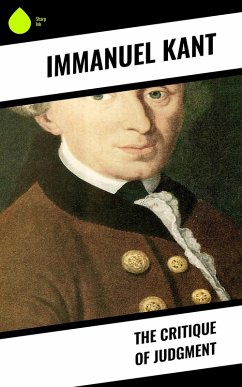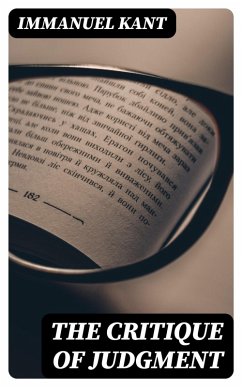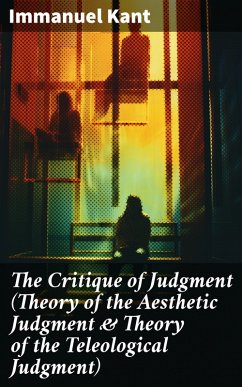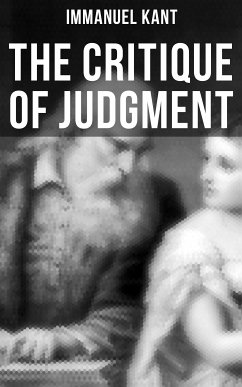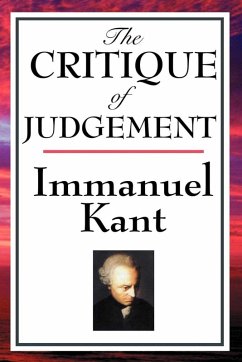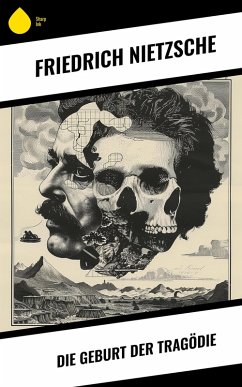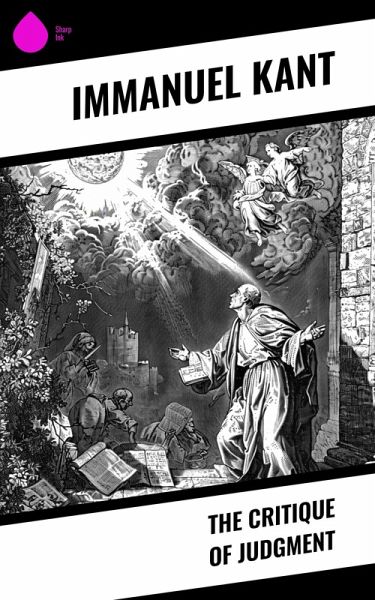
The Critique of Judgment (eBook, ePUB)

PAYBACK Punkte
1 °P sammeln!
In "The Critique of Judgment," Immanuel Kant meticulously explores the interplay between aesthetics and teleology, framing his discourse within the broader context of his critical philosophy. This work is pivotal in Kant's critical trilogy, whereby he delves into the nature of beauty, the sublime, and the principles governing aesthetic experience. Employing a rigorous analytical style, Kant distinguishes between the subjective nature of taste and the objective claims of judgments, thereby establishing a foundation for modern aesthetic theory. His examination of purposiveness in nature and art ...
In "The Critique of Judgment," Immanuel Kant meticulously explores the interplay between aesthetics and teleology, framing his discourse within the broader context of his critical philosophy. This work is pivotal in Kant's critical trilogy, whereby he delves into the nature of beauty, the sublime, and the principles governing aesthetic experience. Employing a rigorous analytical style, Kant distinguishes between the subjective nature of taste and the objective claims of judgments, thereby establishing a foundation for modern aesthetic theory. His examination of purposiveness in nature and art invites readers to consider how beauty is not merely an isolated sensory experience but has significant implications for moral and philosophical thought. Kant, a prominent figure of the Enlightenment, was influenced by the intellectual climate of his time, characterized by a growing fascination with reason and experience. His background in mathematics and metaphysics, combined with the socio-political upheavals of 18th-century Europe, shaped his inquiries into the nature of judgment and appreciation. "The Critique of Judgment" represents a culmination of Kant's efforts to reconcile empirical observations with rationalist philosophy, reflecting his lifelong commitment to understanding human cognition and ethics. This seminal text is essential for anyone interested in philosophy, aesthetics, or the intersection of reason and emotion. By engaging with Kant's profound insights, readers will gain a deeper appreciation for the complexities of judgment and beauty that continue to resonate in contemporary discourse. Whether for academic study or personal enrichment, this work invites thoughtful reflection on the nature of human experience.
Dieser Download kann aus rechtlichen Gründen nur mit Rechnungsadresse in A, B, BG, CY, CZ, D, DK, EW, E, FIN, F, GR, HR, H, IRL, I, LT, L, LR, M, NL, PL, P, R, S, SLO, SK ausgeliefert werden.




